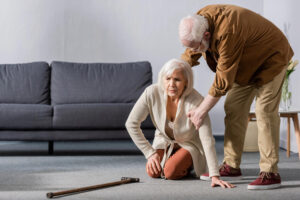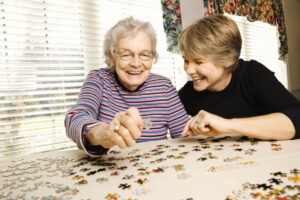The holidays are a great time to visit loved ones and reconnect. They are also a good time to check in with your older loved ones to make sure they are healthy and comfortable in their living situation. Here are some tips for assessing how your relative is doing.
- Living conditions. Keep an eye out for a drastic change in living conditions. If they used to be a meticulous housekeeper, and now the house appears dirty, that could be a sign that housekeeping is too much for them to handle alone. Similarly, if the yard is overgrown, clutter is piling up in the garage, or the trash hasn’t been taken down in a while – these are all signs that they might need additional help.
- Overall health. How is their health since your last visit? Are they keeping up with medications, doctor’s visits, and regular meals? Note if they have lost or gained weight, if posture has changed drastically, or if hands shake. These can be signs of underlying health concerns, emotional stress or even depression.
- Mood and social interactions. If you notice a drastic change in their mood from your last visit, increased irritability or fatigue, or avoidance of social interaction, this could also be a sign of declining physical or mental health. What you’re looking for is a noticeable change from past visits; not ordinary stress caused by the holidays or a house full of visitors.
- Driving concerns. Take a ride with your loved one and pay attention to how alert they are on the road. Are they driving way above or below the speed limit? Are they calm and relaxed, or more tense and irritable than they used to be? If you are concerned, find out when they last renewed their license. Renewal procedures vary by state, but can be different for older drivers and may require them to renew in person.
- Trust your gut. You know your loved ones best. You will probably sense if your loved one is experiencing changes that make it hard for them to live independently. It’s normal to expect that people will change as they age, and not be able to take on as much as they used to. It’s not a real cause for concern until you notice a drastic change, overall decline or real safety issues. Pay attention, ask open-ended questions, and listen attentively.
Take your time during the visit to pay attention to all of these factors and resist the urge to jump into the conversation right away. If it turns out that your loved one does need to change living situations, you’ll want to handle that conversation with care and sensitivity. The National Institute on Aging has some great resources on the topic as well as Elder Care Alliance.




















